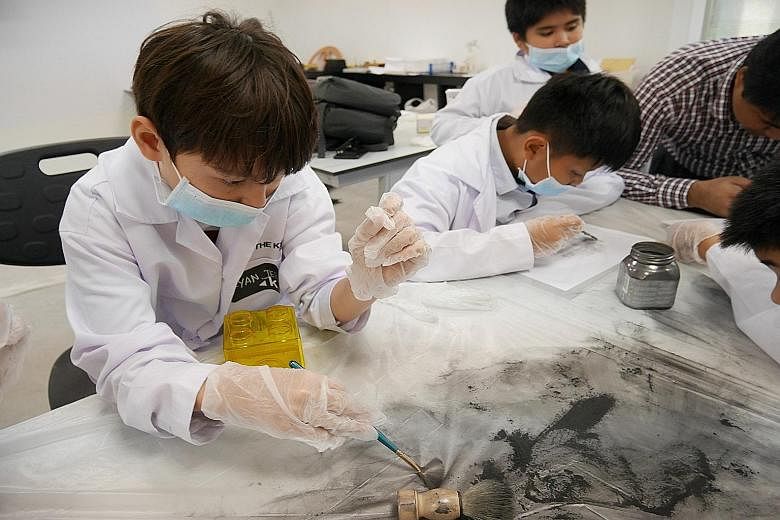In line with the Ministry of Education's emphasis on holistic development and character education, enrichment providers are offering programmes to nurture students in non-academic ways, too.
The Keys Academy, for instance, said it offers courses that are multi-disciplinary in approach.
At one of its offerings, a holiday workshop titled CSI: Murder Mystery, children aged 10 to 12 enter a mock crime scene and hunt for clues to help them solve a murder.
A diamond dealer has been murdered and the gems have been stolen. Participants have to work out which of five suspects is the culprit.
They learn about fingerprint dusting, chromatography and footprint casting, and how to calculate a person's height based on his stride length.
They then present their findings in a mock court and explain how they identified the murderer.
To complete the experience, they visit the Supreme Court and watch a trial. A former lieutenant- colonel from the army with expertise in forensics and investigation also addresses the children.
One of the trainers, Mr Justin Olby, 46, said: "It's an inter-disciplinary approach. You learn maths, physics, chemistry and communications. You learn to think critically and solve problems. There are no right answers, but there is a better one. The children are taught to make decisions for themselves and develop persuasive arguments."
Other programmes aim to equip children with skills to improve their emotional health.
Earlier this month, a mental health clinic in Novena Medical Centre organised its inaugural camp on developing resilience for children aged six to 10.
Dr Thomas Lee, who started The Resilienz Clinic in 2011, decided to run the camp as he felt it would be good "to give children some learning points on resilience".
The 17 children at the three-day camp learnt breathing techniques which can calm them and ways to change negative thoughts to positive ones, among other things.
Dr Lee got them to blow bubbles into their milkshake or apple juice to regulate their breathing. He said: "We taught them to breathe in for three seconds and breathe out for three seconds. When children throw a tantrum, it is quite common for them to hyperventilate.
"Often when we see an adult and trace back their history, we often find that they already had problems as a kid. They may lack coping or management skills and learn unhealthy ways of managing stress.
"What we are trying to do is preventive. We hope to introduce to the children certain skills to help them manage their emotions."
Pearl Lee

